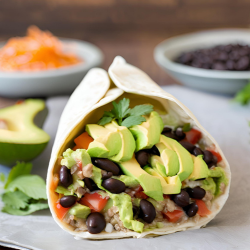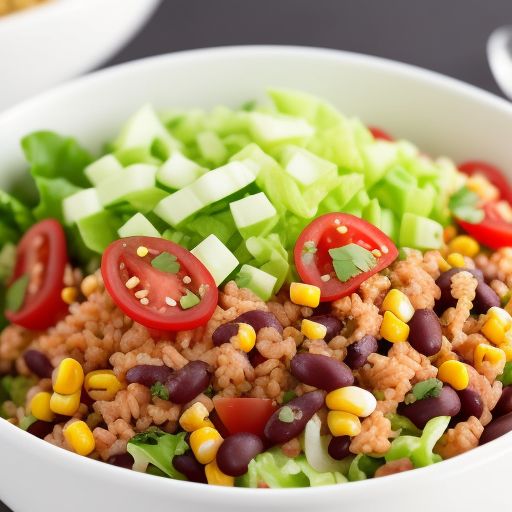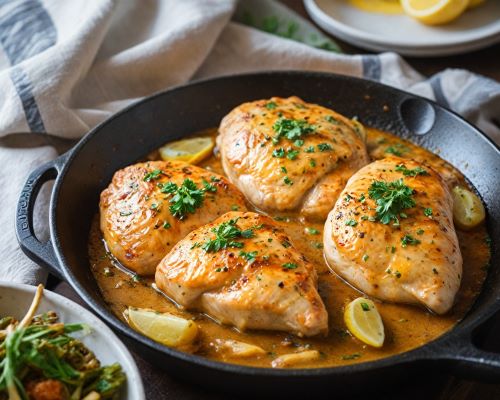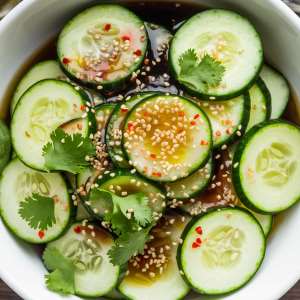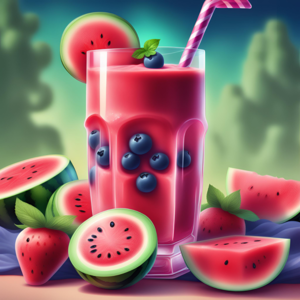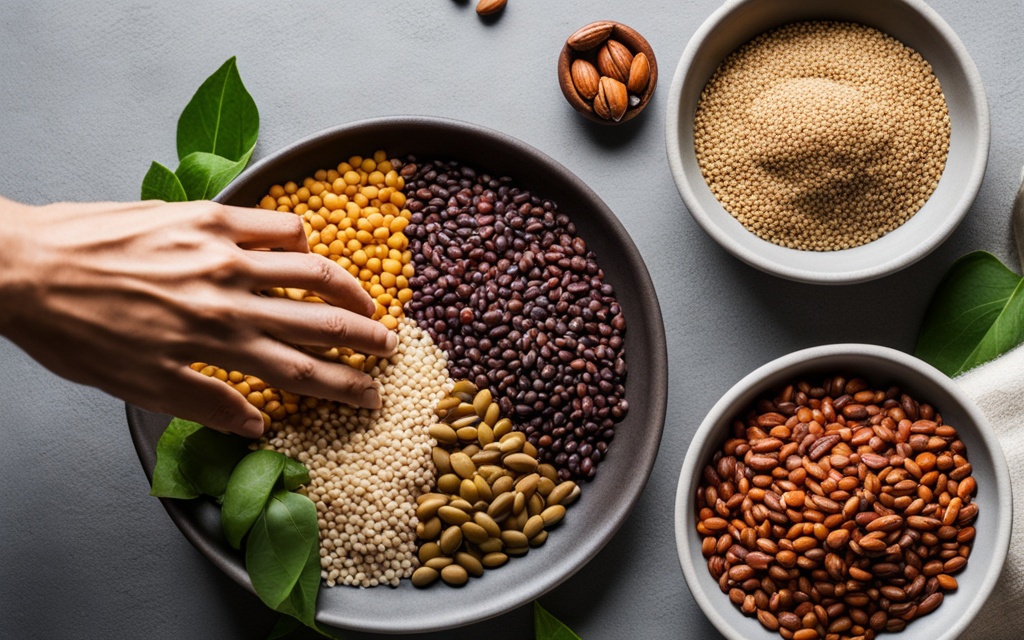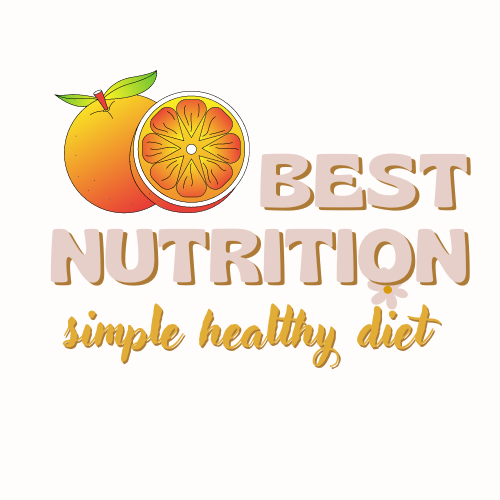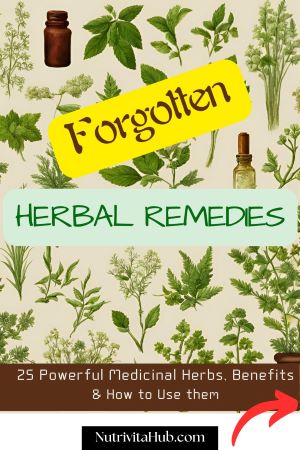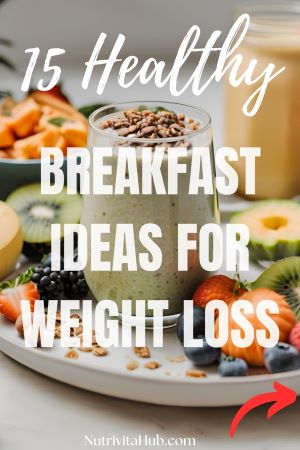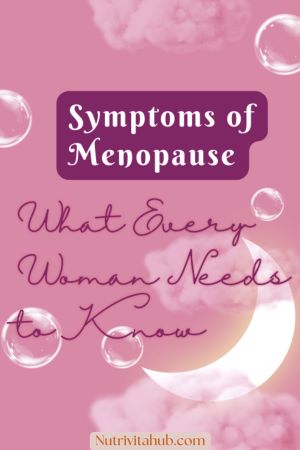Did you know that 80% of the soy grown worldwide is for animal feed, not food? This fact shows the big opportunity for athletes in plant-based proteins. They are perfect for anyone wanting to mix up their protein choices and help with muscle growth. Whether you’re a full vegan or just want to try something different, vegan protein sources for athletes are varied and effective for your sports needs.
If you’re into sports, you’re well aware of how important protein is. It’s crucial for muscle building, recovery, and giving you energy for your workouts. But here’s the kicker: plant-based proteins can do all that and are great for meatless protein options, vegan bodybuilding diet, vegan athlete nutrition, and plant-based muscle growth. Many vegan fitness meal plans include plenty of high-protein vegan foods and dairy-free protein sources to keep you going strong.
Key Takeaways
- Vegan protein sources can effectively support the nutritional needs of athletes.
- A variety of plant-based foods, such as legumes, grains, nuts, and seeds, provide complete protein profiles.
- Proper planning and a balanced vegan fitness meal plan can ensure adequate intake of all essential amino acids.
- Many successful vegan athletes have demonstrated that a plant-based diet can fuel athletic performance and muscle growth.
- Incorporating cruelty-free protein powder can be a convenient way to boost protein intake for vegan athletes.
What is Protein and How Much Do We Need?
Protein is crucial for our bodies because it provides energy, helps us grow, and keeps us healthy. It’s made of 20 amino acids, the basic materials of our cells, tissues, and organs. Amino acids have important jobs like fixing cells, making enzymes, and helping the body in many ways.
Defining Protein and Its Role
There are 20 amino acids in total, but our bodies can’t make 8 of them. We need to get the “essential” amino acids from food. Protein is key for having strong muscles, a good immune system, and growing up well.
Recommended Protein Intake for the General Population
For adults, the rule is to get 0.8 grams of protein for each kilogram they weigh every day. For example, someone 150 pounds (68 kg) would aim for about 54 grams of protein daily. But, the actual amount you need might change based on how active you are or your health.
Actual Protein Intake in Different Dietary Groups
In the United States, men usually get 88 grams of protein a day, while women get 66 grams. It’s interesting that people who don’t eat meat often get less protein. Yet, with careful meal planning, they can still get what they need.
Can Vegan Athletes Get Enough Protein?
If you’re an athlete, you need more protein than the average person. The recommended protein intake for athletes is 1.0-1.8 grams per kilogram of body weight per day. This is true no matter if you’re vegan, vegetarian, or eat meat. There’s no proof that vegan athletes have to focus more on protein than other nutrients.
Plant-Based Protein Sources for Athletes
To meet the higher caloric and nutrient demands, all athletes should eat more. Luckily, there are many plant-based protein sources that can help:
- Legumes (beans, lentils, peas)
- Whole grains (quinoa, brown rice, oats)
- Nuts and seeds
- Soy products (tofu, tempeh, edamame)
- Nutritional yeast
- Vegan protein powders
Real-Life Examples of Successful Vegan Athletes
Elite vegan athletes show that a plant-based diet can meet all their needs for performance.
“Being a vegan athlete, I’ve learned I get enough protein from tasty plant-based foods. I’ve never performed better.”
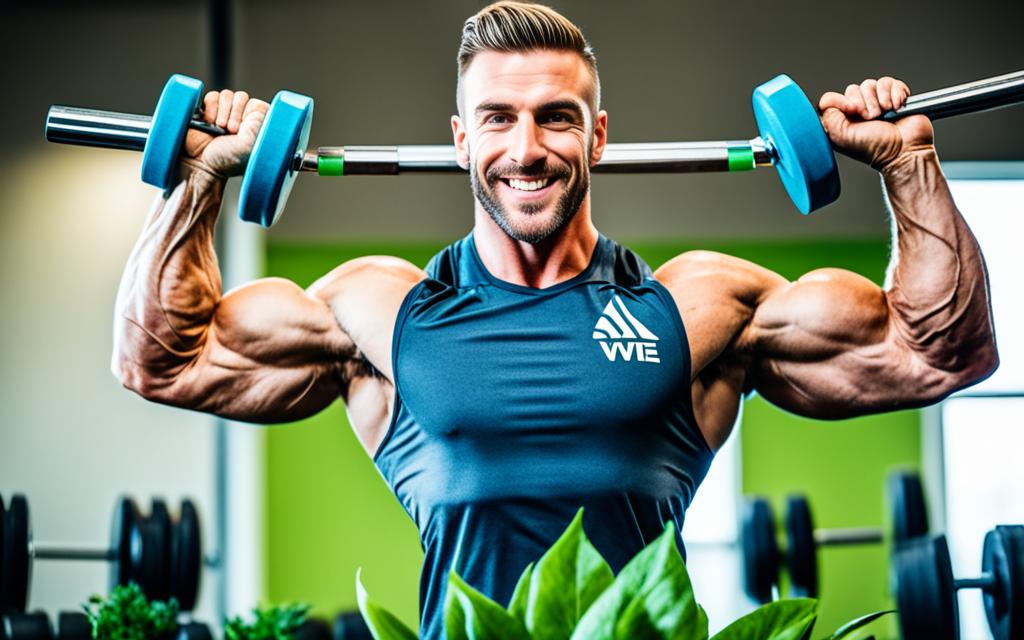
Vegan Protein Sources for Athletes
Eating a balanced, full of nutrients, diet is key for athletes. It should give your body all the important amino acids. These help you perform well and recover quickly. While most think meat, eggs, and dairy are the best for building strength and staying fit, this isn’t always true. Plant-based foods are just as good or even better for keeping you active.
Complete and Incomplete Plant Proteins
Proteins are the building blocks of amino acids. Some foods have all nine essential amino acids, making them complete proteins. Meat, poultry, fish, eggs, and dairy are often complete proteins. But, foods like soy, quinoa, and buckwheat can also be complete. These give your body everything it needs.
Some plant-based foods only have some of the essential amino acids, like grains, legumes, nuts, and seeds. They are called incomplete proteins. But, if you eat a mix of these foods during the day, you will still get all the amino acids you need.
High-Protein Whole Plant Foods
Focusing on plant-based, nutrient-rich foods is great for muscle building and better performance. Here are some top vegan protein sources:
- Legumes (beans, lentils, peas)
- Soy products (tofu, tempeh, edamame)
- Nuts and seeds (almonds, chia, hemp, flax)
- Whole grains (quinoa, brown rice, oats)
- Nutritional yeast
No Need for Protein Combining
You don’t have to mix and match different plant-based proteins at every meal to get what you need. Instead, focus on eating a range of plant foods. This way, your body can make all the essential amino acids.
| Vegan Protein Source | Protein Content (per 100g) |
|---|---|
| Lentils | 25g |
| Tofu | 18g |
| Tempeh | 19g |
| Quinoa | 14g |
| Peanuts | 25g |
| Almonds | 21g |
| Chia seeds | 16g |
| Nutritional yeast | 16g |
Benefits of Plant-Based Proteins Over Animal Proteins
More athletes are choosing plant-based protein sources. Studies show plant proteins are better for health and the planet. They have many advantages over animal proteins.
Health Risks of Consuming Animal Protein
Eating too much animal protein, especially red and processed meats, can harm your health. It is linked to cancer, heart disease, diabetes, and osteoporosis. Animal protein can also cause weight gain, body inflammation, and lower testosterone.
Potential Concerns with Excessive Plant Protein Intake
Plant proteins are good, but too much can cause problems. Some protein powders or supplements might stress your kidneys or unbalance nutrients. Eating a mix of whole, plant-based foods is the best way to get protein.
| Animal Protein | Plant-Based Protein |
|---|---|
| Associated with increased risk of chronic diseases like cancer, heart disease, and diabetes | Generally associated with reduced risk of chronic diseases and improved overall health outcomes |
| Can contribute to weight gain, inflammation, and decreased testosterone levels | Typically lower in calories and fat, and higher in fiber, antioxidants, and other beneficial plant compounds |
| May contain higher levels of saturated fat and cholesterol | Cholesterol-free and generally lower in saturated fat |
| Potential concerns with food-borne illnesses and environmental impact | Typically more sustainable and environmentally friendly production methods |
Conclusion
Vegan and vegetarian athletes can get enough protein without supplements. They just need to include various plant foods in their diet. Foods like grains, legumes, and nuts provide the amino acids necessary for their bodies.
Eat a wide range of plant proteins in your meals. Include lentils, chickpeas, almonds, and quinoa for variety. Planning and being creative helps make tasty, protein-packed meals for active lifestyles.
As an athlete, you might need more protein, but this is doable with plant foods. Stick to whole, unprocessed foods to meet your protein needs. You’ll also benefit from important vitamins, minerals, and antioxidants for your health and fitness.
FAQ
What is protein and why is it important?
How much protein do athletes need?
What are complete and incomplete proteins?
Can vegan athletes get enough protein from plant-based sources?
What are the benefits of plant-based proteins over animal proteins?
Source Links
- https://www.forksoverknives.com/wellness/vegan-protein-guide-athletes/
- https://www.uwhealth.org/news/what-to-eat-when-youre-a-vegetarian-or-vegan-athlete
- https://www.ncbi.nlm.nih.gov/pmc/articles/PMC5598028/
